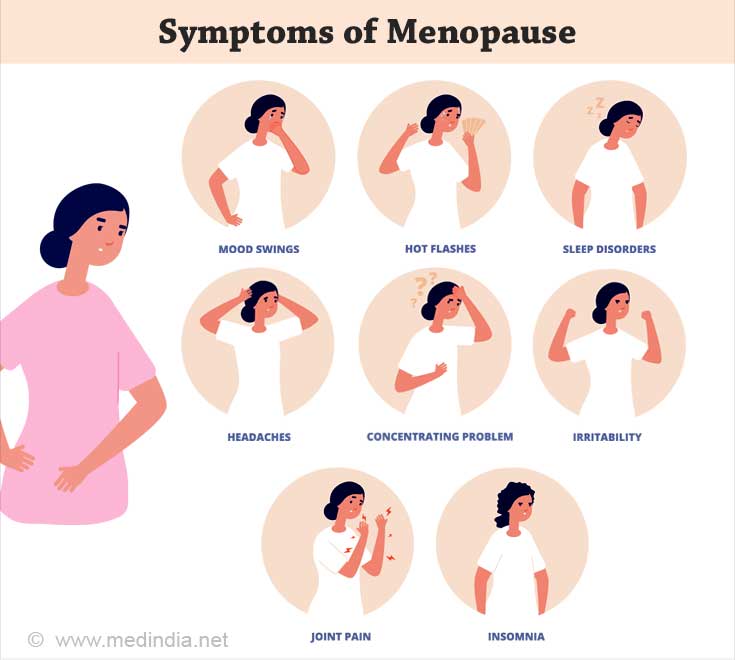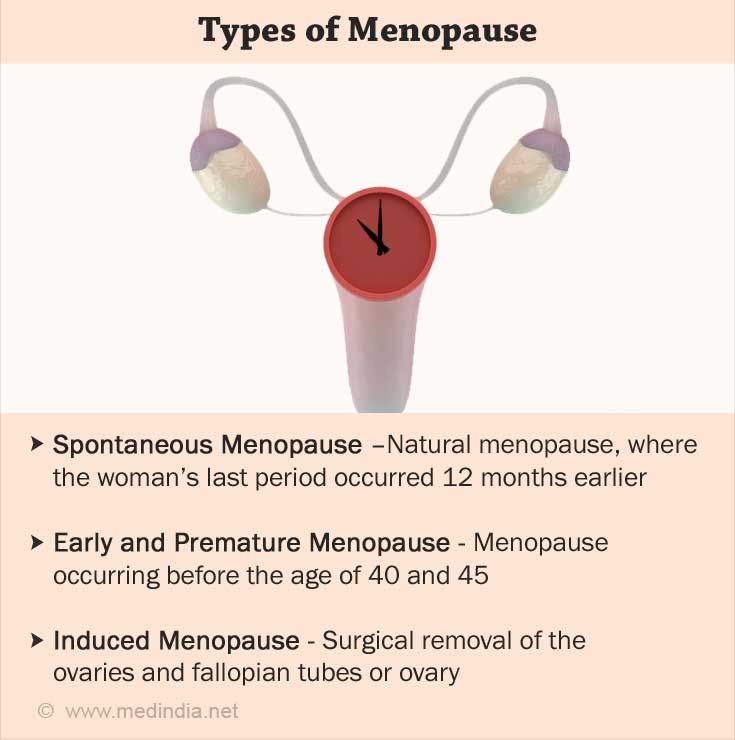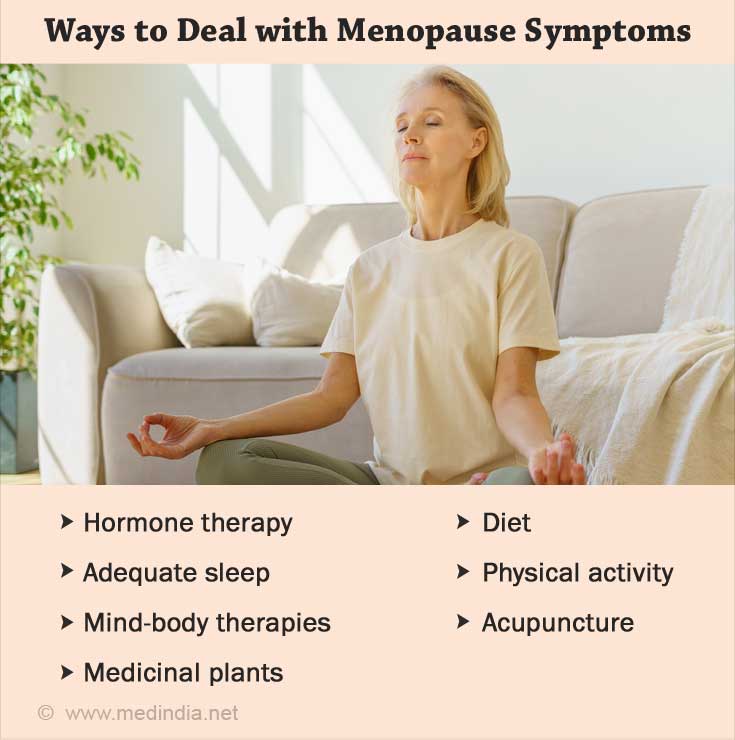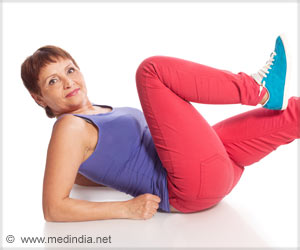- Kalhan, M., Singhania, K., Choudhary, P., Verma, S., Kaushal, P., & Singh, T. (2020). Prevalence of Menopausal Symptoms and its Effect on Quality of Life among Rural Middle Aged Women (40-60 Years) of Haryana, India. International journal of applied & basic medical research, 10(3), 183-188. - (https://doi.org/10.4103/ijabmr.IJABMR_428_19)
- Borker, S. A., Venugopalan, P. P., & Bhat, S. N. (2013). Study of menopausal symptoms, and perceptions about menopause among women at a rural community in Kerala. Journal of mid-life health, 4(3), 182-187. - (https://doi.org/10.4103/0976-7800.118997)
- Edwards, H., Duchesne, A., Au, A. S., & Einstein, G. (2019). The many menopauses: searching the cognitive research literature for menopause types. Menopause (New York, N.Y.), 26(1), 45-65. - (https://doi.org/10.1097/GME.0000000000001171)
- Menopause - (https://my.clevelandclinic.org/health/diseases/21841-menopause)
- Menopause - Diagnosis & Treatment - (https://www.mayoclinic.org/diseases-conditions/menopause/diagnosis-treatment/drc-20353401)
- Innes, K. E., Selfe, T. K., & Vishnu, A. (2010). Mind-body therapies for menopausal symptoms: a systematic review. Maturitas, 66(2), 135-149. - (https://doi.org/10.1016/j.maturitas.2010.01.016)
- Kargozar, R., Azizi, H., &Salari, R. (2017). A review of effective herbal medicines in controlling menopausal symptoms. Electronic physician, 9(11), 5826-5833. - (https://doi.org/10.19082/5826)
- Barnard, N. D., Kahleova, H., Holtz, D. N., Del Aguila, F., Neola, M., Crosby, L. M., &Holubkov, R. (2021). The Women's Study for the Alleviation of Vasomotor Symptoms (WAVS): a randomized, controlled trial of a plant-based diet and whole soybeans for postmenopausal women. Menopause (New York, N.Y.), 28(10), 1150-1156. - (https://doi.org/10.1097/GME.0000000000001812)
- Chen, M. N., Lin, C. C., & Liu, C. F. (2015). Efficacy of phytoestrogens for menopausal symptoms: a meta-analysis and systematic review. Climacteric : the journal of the International Menopause Society, 18(2), 260-269. - (https://doi.org/10.3109/13697137.2014.966241)
- Lund, K. S., Siersma, V., Brodersen, J., &Waldorff, F. B. (2019). Efficacy of a standardized acupuncture approach for women with bothersome menopausal symptoms: a pragmatic randomized study in primary care (the ACOM study). BMJ open, 9(1), e023637. - (https://doi.org/10.1136/bmjopen-2018-023637)
What is Menopause?
Menopause is a transition phase in a woman’s reproductive system.They experience their final menstrual period or are gone without menstrual periods for 12 months and shift to a non-reproductive stage. This sentence does not make sense. Please explain it once again.
Menopause age ranges between 45 and 55 years. The symptoms that occur during this transitional phase are marked by oscillations in the levels of reproductive hormones and changes in the menstrual cycle. The symptoms of menopause are reflected in the cardiovascular, skeletal, and psychological systems as well.
The symptoms are tolerated by some but may affect the quality of life for some others. Factors like heredity, economy, behavior, lifestyle, education, culture, and dietary patterns may influence these symptoms(1✔ ✔Trusted Source
Kalhan, M., Singhania, K., Choudhary, P., Verma, S., Kaushal, P., & Singh, T. (2020). Prevalence of Menopausal Symptoms and its Effect on Quality of Life among Rural Middle Aged Women (40-60 Years) of Haryana, India. International journal of applied & basic medical research, 10(3), 183-188.
Go to source). It should be noted that this phase is immersed in myths and taboos, especially in the Indian context.
Studies have shown that Indian women have under-reported their menopause symptoms due to cultural beliefs. Awareness about these symptoms and early recognition can assist in reducing fear and managing the symptoms(2✔ ✔Trusted Source
Borker, S. A., Venugopalan, P. P., & Bhat, S. N. (2013). Study of menopausal symptoms, and perceptions about menopause among women at a rural community in Kerala. Journal of mid-life health, 4(3), 182-187.
Go to source).
What are Menopause Symptoms?
Menopause symptoms vary from individual to individual. However, the commonly reported symptoms include the following,

- Vaginal dryness
- Emotional instability
- Insomnia
- Hot flashes
- Night sweats
- Dry skin
- Joint pain
- Hair loss
These symptoms arise due to the hormonal shuffling that occurs around menopause. Several ways to manage these symptoms include hormonal therapy, diet, physical activity, mind-body therapies, acupuncture, and herbal medicines(3✔ ✔Trusted Source
Edwards, H., Duchesne, A., Au, A. S., & Einstein, G. (2019). The many menopauses: searching the cognitive research literature for menopause types. Menopause (New York, N.Y.), 26(1), 45-65.
Go to source, 4✔ ✔Trusted Source
Menopause
Go to source).
What are the Different Types of Menopause?
Menopause can be categorized into three types: spontaneous, early and premature, and induced menopause. Read below to know about these types in detail.

- Spontaneous Menopause: Also known as the natural menopause, where the woman’s last period occurred 12 months earlier. Post-menopause due to the fall in ovarian hormones they may experience the following symptoms: night sweats, hot flashes, mood changes, vaginal dryness, and poor sleep.
- Early and Premature Menopause: Menopause occurring before the age of 40 and 45 is termed premature and early menopause, respectively. Though the hormone variations may be similar to spontaneous menopause, some women report the return of periods or even pregnancy. The common symptoms experienced among early or premature menopausal women are hair loss, clicking of joints, hypothyroidism, and intolerance to cold.
- Induced Menopause: Surgical removal of the ovaries and fallopian tubes or ovary abscission through chemotherapy or radiation is referred to as induced menopause. This type of menses cessation is carried out in case of cysts, endometriosis, ovarian cancer, or ovarian torsion. The symptoms may be severe and include vaginal atrophy, joint pain, dyspareunia, mood changes, hot flashes, and poor sleep(3✔ ✔Trusted Source
Edwards, H., Duchesne, A., Au, A. S., & Einstein, G. (2019). The many menopauses: searching the cognitive research literature for menopause types. Menopause (New York, N.Y.), 26(1), 45-65.
Go to source).
What are the 3 Stages of Menopause?
Natural or spontaneous menopause is a gradual process and occurs over three stages.
Stage 1: The first stage is referred to as the
Stage 2: This is the ‘menopause’ stage, where the woman may not experience menstruation. At this stage, the ovaries stop releasing eggs and periods may not have occurred for the previous twelve months.
Stage 3: This is the stage after the cessation of menses for a year and is referred to as the ‘post-menopause’ stage. The symptoms generally settle during this stage for most women. Due to the drop in estrogen levels post-menopause, there is a rise in the risk bar for several health conditions namely heart disease and osteoporosis(4✔ ✔Trusted Source
Menopause
Go to source).
Ways to Deal with Menopause Symptoms
The symptoms popping during this major reproductive shift can be challenging and tiring for many. For some women, the symptoms can affect their quality of life too. Here are different ways to deal with menopause symptoms.

- Hormone therapy: Hormone therapy is used to bring a balance to the hormonal disruption that has occurred due to menopause. Estrogen or estrogen-progesterone hormones are generally supplemented. Hormone therapy helps in relieving symptoms such as vaginal dryness, hot flashes, mood swings, hair loss, and night sweats. Vaginal estrogen available as a cream, tablet, and ring can be administered directly to the vagina to treat vaginal dryness(4✔ ✔Trusted Source
Menopause
Go to source, 5✔ ✔Trusted Source
Menopause - Diagnosis & Treatment
Go to source). - Adequate Sleep:Too much caffeine and physical inactivity can affect one’s sleep. Strenuous exercise right before bedtime should be avoided. Relaxation techniques like meditation can also help(5✔ ✔Trusted Source
Menopause - Diagnosis & Treatment
Go to source). - Mind-Body Therapies: Studies have found that yoga, tai-chi, and meditation-based programs help greatly with symptoms such as musculoskeletal pain, psychological distress, sleep disturbances, hot flashes, and joint pain(6✔ ✔Trusted Source
Innes, K. E., Selfe, T. K., & Vishnu, A. (2010). Mind-body therapies for menopausal symptoms: a systematic review. Maturitas, 66(2), 135-149.
Go to source).
- Medicinal plants: Medicinal plants have been shown to play imperative roles in treating acute menopausal symptoms. Sage, lemon herb, fenugreek, fennel, evening primrose, ginkgo, alfalfa, licorice, red clover, and many more have been studied to understand its efficacy. These plants have been reported to be fruitful in the treatment of the following symptoms: hot flashes, sleep disorders, digestive problems, vaginal atrophy, vasomotor symptoms, and psychological distress. Medicinal plants can also help improve immunity and maintain bone density(7✔ ✔Trusted Source
Kargozar, R., Azizi, H., &Salari, R. (2017). A review of effective herbal medicines in controlling menopausal symptoms. Electronic physician, 9(11), 5826-5833.
Go to source). - Diet: Dietary changes can go a long way in managing symptoms. Limiting the intake of spicy foods, alcohol, hot beverages, and caffeine can help prevent hot flashes. Including a variety of whole foods, and consuming a balanced diet rich in protein can be helpful. Phytoestrogens are food sources that contain estrogen-like properties. Some of the sources of phytoestrogens are soybeans, flaxseeds, legumes, whole grains, fruits, and vegetables. A study found that consuming a low-fat, vegan diet with whole soybeans turned down the severity and frequency of hot flashes, and as well improved the quality of life in women experiencing vasomotor, physical, sexual, and psychological symptoms(4✔ ✔Trusted Source
Menopause
Go to source, 5✔ ✔Trusted Source
Menopause - Diagnosis & Treatment
Go to source, 8✔ ✔Trusted Source
Barnard, N. D., Kahleova, H., Holtz, D. N., Del Aguila, F., Neola, M., Crosby, L. M., &Holubkov, R. (2021). The Women's Study for the Alleviation of Vasomotor Symptoms (WAVS): a randomized, controlled trial of a plant-based diet and whole soybeans for postmenopausal women. Menopause (New York, N.Y.), 28(10), 1150-1156.
Go to source, 9✔ ✔Trusted Source
Chen, M. N., Lin, C. C., & Liu, C. F. (2015). Efficacy of phytoestrogens for menopausal symptoms: a meta-analysis and systematic review. Climacteric : the journal of the International Menopause Society, 18(2), 260-269.
Go to source).
- Physical activity: Regular exercise helps improve sleep and mood. However, those experiencing hot flashes should avoid strenuous exercise. Calm exercises like yoga can help relieve anxiety and fear(4✔ ✔Trusted Source
Menopause
Go to source). - Acupuncture: Acupuncture has shown to be a great option in managing menopause symptoms. A study found that acupuncture helps in reducing hot flashes, day and night sweats, insomnia and skin and hair symptoms(10✔ ✔Trusted Source
Lund, K. S., Siersma, V., Brodersen, J., &Waldorff, F. B. (2019). Efficacy of a standardized acupuncture approach for women with bothersome menopausal symptoms: a pragmatic randomized study in primary care (the ACOM study). BMJ open, 9(1), e023637.
Go to source).
As the saying goes, one size doesn’t fit all, it is recommended to consult a specialist and understand which treatment may work best for you.










